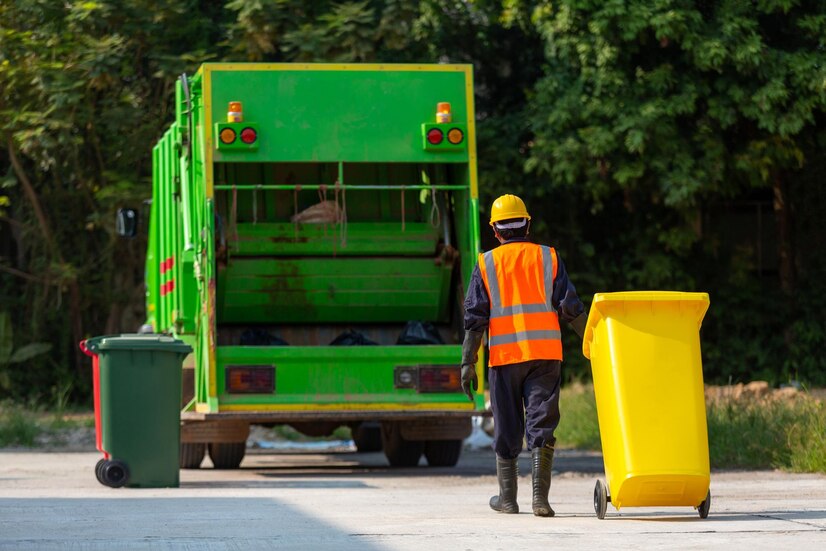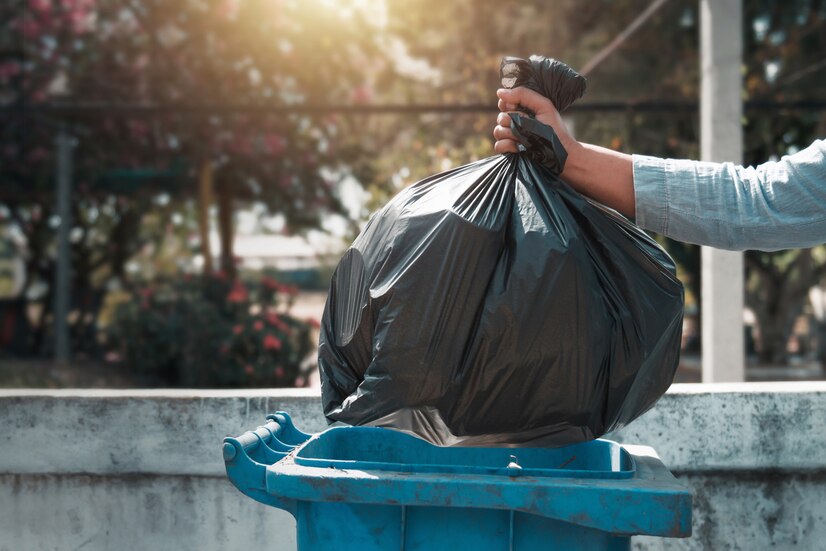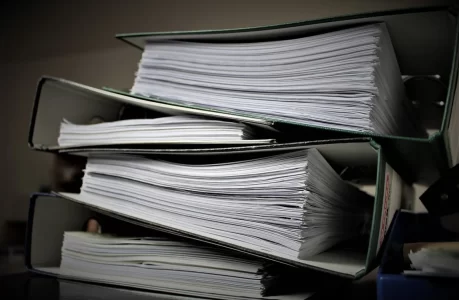The Secret to a Stress-Free Move: Professional Rubbish Removal

Rubbish removal is a service that disposes of trash and waste products responsibly. The aim is simple. To preserve human health and the environment, with potentially hazardous side effects if mishandled improperly.
Some places charge residents a flat monthly fee. On the other hand, you may find some who assess them according to how much garbage they generate. This creates strong incentives to produce less trash. However, it is an essential part of being a homeowner, so let’s get into the details.
What Is Rubbish Removal?
Rubbish removal is the practice of extracting waste from a home or business. It further disposes it appropriately, whether that is in gaseous, liquid, or solid forms.
You should eliminate the excess trash promptly, as this poses health and safety issues. Additionally, it’s beneficial to do this regularly so as to minimize waste production.
Local sanitation departments typically offer various rubbish removal programs for their residents. This includes bulk rubbish collection or community clean-up days for larger items like old appliances and furniture. While these services may cover some of your rubbish production, they might only cover a limited portion of it.
Recycling rubbish is an environmentally friendly way of handling it. It starts by sorting it into categories, such as paper and plastics. Then they take it directly to recycling centers for processing into new products. Recycling offers greater cost efficiency compared to simply disposing of it in landfill space.
Reusing items you no longer require can also be accomplished through various channels. This includes charity donations or giving them away to household members in need. This is an effective solution for working washing machines and storage methods like filing cabinets that you no longer need.
Different Types of Rubbish and How to Handle Them
There are different types of rubbish, such as hazardous waste, commercial waste, or recyclable waste. In this section, we will be discussing various kinds of rubbish and how exactly you can handle them.
Hazardous Wastes
No matter its name – be it rubbish, trash, refuse, scrap, or litter – unwanted material must be appropriately disposed of to avoid health concerns for garbage collectors and workers, as well as polluting waterways and drinking water supplies.
It poses fire risks and blocks drainage systems, while in some instances, toxic materials require special handling procedures.
Hazardous wastes are byproducts of industrial processes that are often disposed of with little thought given to their consequences. Dumping hazardous wastes into landfills can be dangerous.
These harmful materials can poison groundwater, soil, and crops. Moreover these are hazardous to human health as well as leading to animal, plant, and insect deaths. Improper disposal or mishandling can incur fines of thousands of dollars.
How To Get Rid Of It
Hazardous waste must only be placed into specially designated landfills or stored at facilities with an official environmental license; an application process exists for these permits.
Any form of hazardous waste thrown into waterways or rivers poses a severe health threat. It poisons wildlife as well as threatens human health by poisoning drinking waterways and rivers.
Recycling hazardous wastes is often the best option when disposing of rubbish responsibly and efficiently. Recycling preserves natural resources while reducing pollution levels and energy use – recycling is genuinely the greenest form of disposal available.
The NSW Environment Protection Authority oversees the storage, treatment, disposal, and recycling of hazardous waste. However, if the solid waste fails to meet all the criteria, it can be classified as dangerous.
This can mostly happen due to the chemical composition or characteristics such as combustibility or reactivity.
Many household hazardous wastes include paint, motor oil, batteries, and gas cylinders. You can drop these off at permanent dangerous waste collection centers. Sustainability Victoria mainly manages the centers.
They are mainly open during the transfer hours. Additionally, the Environmental Protection Authority lists companies providing hazardous waste collection services.
Your household can reduce hazardous waste production by purchasing products with fewer chemicals or opting for nonhazardous alternatives, which not only decrease storage, treatment, and disposal needs but can save money through licensing fees and disposal fees.
Commercial Wastes
Businesses typically generate commercial waste. You can spot commercial waste in offices, retail outlets, restaurants, and warehouses that do not manufacture items for production at industrial facilities.
It tends to be heavier than household garbage and may require unique disposal methods. Businesses have an obligation to ensure it is adequately segregated, as failure can lead to fines or imprisonment for violating this responsibility.
Commercial waste tends to be collected regularly from larger bins than those used for domestic trash collection. Private waste management companies are responsible for collecting commercial trash.
Business owners should take time to educate their employees about how best to sort and handle their commercial trash in order to reduce environmental harm and save costs in doing so.
How To Get Rid Of It
Businesses should ensure their commercial waste management company understands any requirements specific to their industry, such as recycling difficult waste or disposing of it incorrectly – including items like Styrofoam made of expanded polystyrene found in food containers.
Making environmental improvements easier requires business owners to use a waste management company that provides monthly reports on their commercial waste production so they can more accurately track it and make any needed changes if necessary.
Business owners must also be mindful of any additional fees charged by their waste management provider. This includes such as an oversized waste collection fee for curbside collection or a waste facility. All such extra charges should be factored into the overall cost of running their enterprise and its financial health.
At the end of the day, businesses need a reliable rubbish removal service that offers fast and cost-effective services at an affordable rate. Doing business with such an entity will contribute towards maintaining an attractive environment that benefits both humans and wildlife alike.
Household Wastes
An individual’s garbage not only wastes natural resources but it pollutes the environment and puts human health at risk. Trash releases toxic vapors and greenhouse gasses into the atmosphere, destroying wildlife habitats, depleting the earth of precious metals, wasting energy, water, and labor needed for production, and creating pollution in its wake.
Sorting household waste at its source is key to encouraging recycling and the creation of a circular economy. You can achieve this through the education of households and technical systems that enable them to sort their rubbish into different categories.
Especially organic waste like food scraps, rotten meat, and garden debris, which can then be recycled to produce nutrient-rich compost and reduce landfill methane emissions.
The individuals from the local transfer station collect the household trash and send it directly to a county landfill. Most landfills aren’t equipped to handle hazardous wastes that may seep into groundwater supplies and pollute the air or explode or release toxic fumes. This can pose dangers to both human health and sanitation workers.
Paints and solvents pose hazardous threats – often starting fires in landfills when improperly handled, in addition to polluting air quality and potentially contaminating soil and groundwater supplies with toxic fumes released into soil or groundwater by these chemicals.
In addition to polluting air pollution, paints and solvents may even cause fires or explosions when mishandled in these places – not to mention corroding septic tanks while releasing toxic substances into both environments that contaminate air quality and soil contamination issues.
How To Get Rid Of It
Some hazardous household wastes can be flushed down the drain with enough water. However, those with septic systems should not utilize this method of disposal. It can clog drains, erode pipes, and lead to system failure.
Some chemicals are water soluble and should be washed down the drain, while others require special handling or disposal methods.
Paper, cardboard, food packaging covers, metal oil containers, and cans can all be recycled with great success in the home environment. Other recyclable items include glassware, ceramics, and kitchen wood items which can all be turned back into new items without mining new resources from the earth-saving energy, pollution reduction, and money savings in doing so.
Recycling
It refers to the practice of turning used materials into new, valuable items for reuse, with the goal of conserving resources and lowering disposal costs. This process also reduces extraction (mining, quarrying, and logging), refining, and processing of raw materials required in production processes such as plastic manufacturing. Recycling helps lower greenhouse gas emissions as compared to plastic production.
Moreover, recycling programs can be undertaken on either a large- or small-scale by individuals or businesses, including buy-back programs, drop-off centers, and curbside collection. Companies like Ridly Rubbish Removal are also available for residential or commercial properties. Once collected materials have been taken to a recovery facility and separated and cleaned for sale to corporations and industries for use in manufacturing products.
Recyclable materials include newspapers and cardboard boxes. These can be sold to paper mills to be processed into new paper products. Aluminum cans and glass bottles may also be recycled into new products.
Recycling should be conducted responsibly and sustainably. This way, you can protect both people and the environment. However, improper recycling practices can create health and safety concerns for workers if not managed appropriately. Therefore, hiring professional rubbish removal services is crucial.
Many are unaware of the environmental ramifications of their trash production; indeed, most Americans do not understand that much of it comes directly from their homes – in Australia alone, over 50 million tons are produced annually!
Now, to maintain an environmentally friendly space, it is necessary to collect the trash regularly and further dispose of it. Three standard methods that can help you to handle municipal solid waste are incineration, landfilling, and recycling.
However, incineration remains one of the least preferred waste treatment methods due to its potentially devastating environmental consequences, including air and water pollution.
How To Dispose of Rubbish Near Me: Cost Considerations & Legal Regulations
Here is a brief guide on waste disposal near you, considering the cost and legal issues:
Urban services
Engage with the local municipality. Find the collection schedule and what type of material is accepted. The materials are usually broadly categorized as organics, recyclables, and solid waste- andd the cost in place.
Also, try to compare subscription options. Other cities offer different levels of service, and each has its own pricing.
Private Waste Collection
Research Private Waste Collectors. If municipalities are not available, research private haulers. Compare costs and what services are available, from how often collected to the availability of recycling.
You must also research licensing and insurance. Make sure the organization is licensed to operate in your region and has an insurance cover.
Recycling stations
Identify local recycling facilities: Most communities have designated specific drop-off locations for certain materials, including electronic devices, batteries, and hazardous waste. Are there any fees? Yes, some places will charge for selected services.
Legal Concerns
First comes the Illegal dumping. This is the disposal of flittering or dumping at unauthorized places, and it carries fines.
Second comes hazardous waste disposal. Dangerous substances like paints, chemicals, and electronics have specific laws. Improper disposal will cause severe damage to both the environment and humans.
Cost-Saving Tips
Waste. Eliminate wastes at the source; consume less; reuse where practical, with an attitude to recycle. The composting of food waste and other garden material waste reduces the amount of waste sent to landfills.
Benefits of Professional Rubbish Removal Services
Hiring a professional rubbish removal service offers you several benefits. This includes saving time and effort, ensuring waste disposal in a proper way, and further better compliance with the local regulations.
Other than that, professional rubbish removal can handle hazardous materials while reducing the solid environmental impact. It also provides great peace of mind as they take proper care of the disposal process.
The rubbish removal companies know where to dispose of the waste correctly while avoiding all the potential fines. In addition to that, depending on the overall volume of the trash, you can hire a professional. It is going to be more economical in that way.
Tips for Reducing Waste and Promoting Sustainability
Here are some of the tips that you can follow in reducing waste and further promoting sustainability. Read on…
- Try to avoid single-use plastics such as straws, bottles, packaging, etc. These times usually take thousands of years to decompose and can further harm human and animal kingdoms.
- You can opt for reusable bags, utensils, and containers instead of disposable ones.
- Try to buy loose fruit and vegetables instead of the ones that are heavily packaged.
- Plan for your meal wisely. This can help you to avoid food waste.
- You can also join various community programs or may volunteer to reduce waste.
- Try to go digital. Try to sign up for a paperless banking or billing system.
Other than these, you can also incorporate the popular strategy, the 33Rsor Reduce, Reuse, and Recycle. This way, you can make improvements in waste management processes or minimize environmental impact from your daily life.
Read Also:


























Leave A Reply